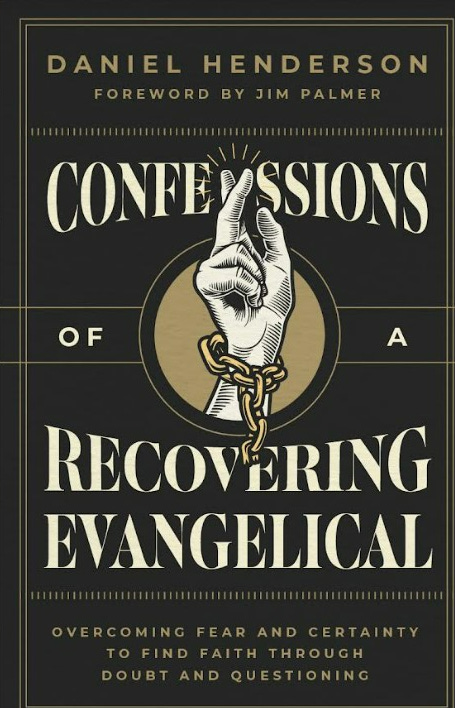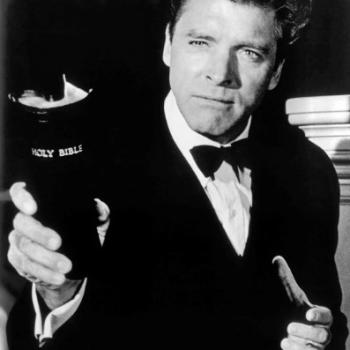Why Write a Book? And Why Did It Take So Long?
I’ve been working on Confessions of a Recovering Evangelical for the past oh, 15 years. I know I procrastinate and I put off till tomorrow everything I should be doing today. But really, this book is the result of a life-long spiritual journey. In writing this book, I’ve tried to recount the evolution and development of my personal faith, and how I grew out of an Evangelical world-view.
Evangelicalism has hit on hard times recently especially with their endorsement…well, maybe complete absorption and adoption of Donald J. Trump as their poster-boy. Since 2016, the blinders have come off and many people have seen this movement for what it is now….as sham. It is hypocrisy 101 and a rejection of the essential teachings of the Jewish mystic and teacher, Jesus of Nazareth. It is no coincidence that the fastest growing religious affiliation in the United States is “none”…meaning, no affiliation.
I didn’t wait for this great unveiling in 2016, but I left the Evangelical fold in the early 2000’s. It wasn’t long after 9/11 that I realized that the evangelical church was bankrupt and no longer had very much to offer our society. And personally, it was not providing the substance and essence of what I was looking for…so I left it after nearly 40 years of involvement.
Being Part of the Jesus People Movement
This book will recount my life in the Evangelical movement from the 1960’s when being an Evangelical was more “counter-cultural” and part of the original Jesus People movement aligned to the hippie movement. Right-wing politics was not an issue then and Jesus People seemed to understand the essential nature of the teachings of Jesus…love your neighbor. It was simple, it was elegant and it was attractive especially in a moment in time of exteme social upheaval.
But over time my commitment to this way of life and thinking began to take a toll on my own personal integrity. The questions and doubts had to be ignored or stuffed into a nether world of self imposed ignorance. As a Christian school teacher, I had to teach doctrines and political positions that I was beginning to doubt. The anti-science nature of evangelical teaching was becoming both laughable and a disgrace.
I had sold out to the movement and tried to keep up appearances and alliance, but by the 2000’s it was just too much. I could no longer defend the indefensible, sustain the unsustainable, or preach the unreasonable.
By the 2000’s Evangelicalism was merging closer and closer to right-wing political activism and the essential message of Jesus was left behind in a dumpster of unnecessary ideas. I am convinced that the evangelicals of today would run Jesus of Nazareth out of town for his simple declaration, “love your neighbor, yes, even if they are refugees.”
Evangelical Christianity was unrecognizable to me by the 2000s. My book will detail the reasons why, but what I hope this book does more than anything is let people know that there is abundant life after evangelicalism. You will experience more freedom and spirituality outside of evangelicalism than you ever could hope. And there are lots of people traveling a road leaving the evangelical train station behind. You will not be alone.
There are Five Parts to the Book
Here is an outline what you can expect in these five sections. I think you will find these sections intriguing and a highway to think about reconstructing a new type of faith:
Part 1 – Deconstructing Faith Through Doubt
So many people are deconstructing their faith these days, but this book is more about reconstructing a new faith, not based on beliefs or a creed, but based on connecting to the world around us in new and exciting ways. Faith is a connection. It is about becoming and developing a sense of “we” as opposed to a tribal faith based on the idea of a tribal God. This is what Part 1 of the book is about, my own deconstruction journey.
Part 2 – Faith and Racial Justice: Becoming Antiracist
In this section you will see how a new view of faith as a connection to others leads to a commitment to antiracism. It isn’t enough to simply be non-racist because that is a simple view of how all people are connected to each other. Until we truly connect, begin to examine our own unconscious bias, seek to understand the experience of those that have been oppressed, and begin to develop empathy for that experience, we will over look perhaps the most important issue of our time: becoming antiracist. This means taking action to undo the systemic nature of it.
Part 3 – Faith and Gay Rights: Love is Love Regardless
As I reconstructed a new view of faith as a connection to the people around, my understanding and view of gay rights also underwent a shift….and monumental shift. No longer could I stand in judgment of those with a different sexual orientation that me. How could I stand in judgment of a person struggling with gender identity? In fact, what gave me the right to judge anyone? My goal has become to love everyone, regardless…love it love.
Part 4 – How Evangelical Ideology Threatens the Culture
You notice I call it “evangelical ideology.” I’m not condemning anyone’s theology or their beliefs. But so much of what is considered evangelical belief has been conflated with nationalism and political beliefs, it has not only threatened our culture, but is destroying the religion of Christianity itself. Anytime politics becomes conflated with religion, it is the religion, and any true spirituality that is embedded in it, that is diluted, and ultimately destroyed. This section deals with issues such as the politicization of Christianity, how end-time beliefs are a danger to the nation, and toxic beliefs of Christian Nationalism that include toxic masculinity, the embrace of violent gun culture, and the blurring of distinctions between demonic forces and reality.
Part 5 – Other Deconstruction Heresies
This section is just what it says. Having left the evangelical faith behind, I’ve changed my view on many topics that would now cause me to be labeled a “heretic.” I accept that and consider that I am in good company with some great people, including Jesus of Nazareth. But specifically this section addresses issues such as abortion and the so-called pro-life movement, humanism and the teachings of Jesus, and the tribalism of evangelical Christianity. I think you’ll either gasp at what you read, or nod your head in approval…there probably won’t be very much in-between.
My friends at Quior Publishing helped me to get this book out. With their help and guidance my book has become a reality. I want to thank especially Matthew Distefano, who ended up editing the book and formatting it; Keith Giles who has given me great advice on how to market this sort of thing; Rafael Polendo who helped with the design, and Glenn Siepert who is a genius at social media marketing. I really appreciate their help and support.
There are so many friends that are part of my story who will identify with the message I give in the book, “Confessions of a Recovering Evangelical.” I hope you might decide to join me on this never-ending journey of spiritual growth. It is so rewarding.















